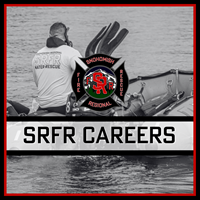
This class will focus on skill development on dry land, followed by pool sessions and finish in open water. All participants will gain operational water skill confidence and techniques, as well as managing water emergencies. Participants will be graded on water operations, survival techniques, as well as scene management. All participants who successfully pass all requirements will receive a certificate with 40 hours CE training in water rescue and receive a National certificate from PADI as a Rescue Swimmer.
This course is mentally and physically challenging. Participants should be in good physical condition.
When class is full, if you would like to get on the waitlist please email Diane at: dianem@fftraining.org
PAYMENT: Payment is due a minimum of 30 days prior to class to secure your spot. Registrations not paid by this time may be opened to someone else who is on the waitlist, if applicable.
CANCELLATION POLICY: Over 30 days' notice = full refund. 14-30 days’ notice = 50% refund. Less than 14 days' notice = no refund.
Instruction and Class Information: Pat MacNealy, Instructional Services, rescueswimmer@fairpoint.net or 253.370.2422
Registration and Payment Information Contact: Diane McMahan at dianem@fftraining.org or 425.316.3424
Bring to class: swimsuit, sweats, personal wet suit, mask, fins, snorkel. Lunch & snacks provided.
EMSI will use the FEMA ICS curriculum and will deliver the course to FEMA and other industry standards, with nationally qualified ICS instructors. Courses will be taught live and will include interactive components. Students will receive an EMSI certificate of completion, stating that the course was delivered in compliance with the FEMA G-300 curriculum requirements.
*Central Time Zone
EMSI will use the FEMA ICS curriculum and will deliver the course to FEMA and other industry standards, with nationally qualified ICS instructors. The course will be taught live and will include interactive components. Students will receive an EMSI certificate of completion, stating that the course was delivered in compliance with the FEMA G-400 curriculum requirements.
*Central Time Zone
Contact BC Dana Larkin for registration
dlarkin@camanofire.com
This course provides training for personnel who require advanced application of the Incident Command System (ICS). This course expands upon information covered in ICS 100 through ICS 300 courses, which are prerequisites for the ICS 400 course.
Selection Criteria: The target audience for this course is senior personnel who are expected to perform in a management capacity in an Area Command or Multi-Agency Coordination Entity.
Course Objectives: Explain how major incidents engender special management challenges. Describe the circumstances in which an Area Command is established. Describe the circumstances in which Multi-Agency Coordination Systems are established.
Prerequisites Participants must have successfully completed: IS0100, Introduction to the Incident Command System IS0200, Basic Incident Command System for Initial Response IS0700, National Incident Management System, An Introduction IS0800, National Response Framework, An Introduction ICS 300 (E/L/G0300), Intermediate Incident Command System for Expanding Incidents
Course Objectives Describe how the National Incident Management System (NIMS) Command and Management component supports the management of expanding incidents. Describe the incident/event management process on a simulated Type 3 Team. Develop an Incident Action Plan for a simulated incident. While the class is scheduled to start *promptly* at 8:00, the room will be open starting at 7:30 AM. Feel free to come early and beat any traffic!
163 Village Court — Monroe, WA 98272
Main Line: (360) 794-7666 —
Automated Operator Line: (425) 486-1217
Fax: (360) 794-0959
